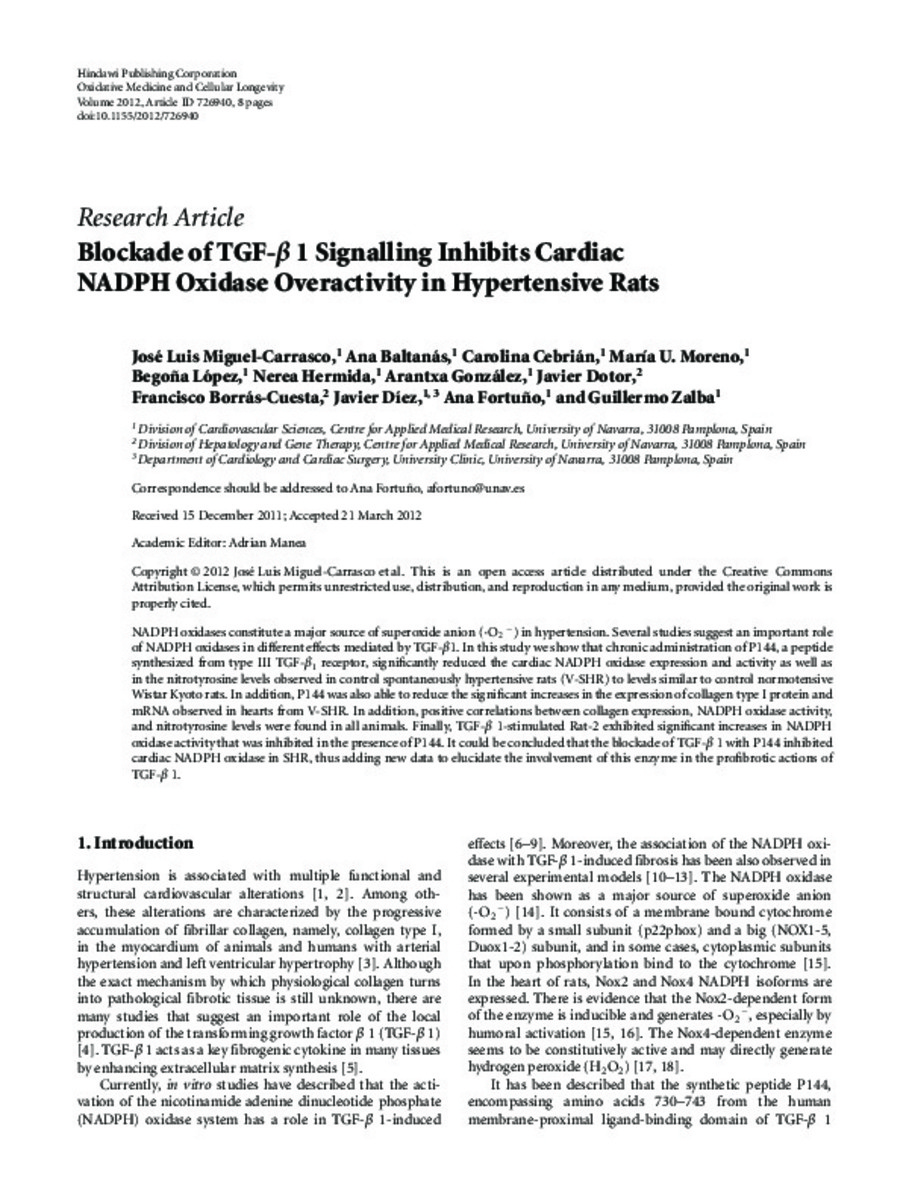Blockade of TGF-β 1 Signalling Inhibits Cardiac NADPH Oxidase Overactivity in Hypertensive Rats
Palabras clave :
Cardiac NADPH oxidase
TGF-beta 1
Hypertensive rats
Fecha de publicación :
2012
Cita:
Miguel-Carrasco JL, Baltanas A, Cebrian C, Moreno MU, Lopez B, Hermida N, et al. Blockade of TGF-beta 1 Signalling Inhibits Cardiac NADPH Oxidase Overactivity in Hypertensive Rats. Oxid Med Cell Longev 2012;2012:726940.
Aparece en las colecciones:
Estadísticas e impacto
0 citas en

0 citas en

Los ítems de Dadun están protegidos por copyright, con todos los derechos reservados, a menos que se indique lo contrario.










